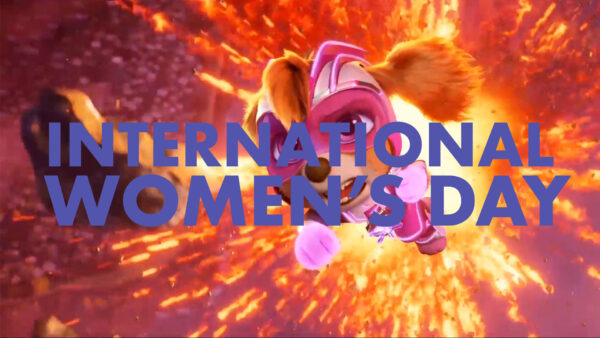
On this International Women’s Day, the Mikros Animation Paris studio team discussed feminism with Estelle Ducarteron, Talent acquisition Team Lead. Here is the result of this fascinating exchange:
What does the international women’s rights day mean to you?
It is a reminder above all. A reminder that there are very good things that have been done in the acquisition of new rights for equality, but also that people in the world and in France are losing them in parallel. This subject of equality cannot be solved. It is sad to connect it to a day like we do for chocolate or puppies. It is not a celebration, we must not drop our guard on the situation of women’s rights in 2023, whether in our near or far environment. It is only one day in the year but if we can make it reflect on the others that follow, let’s take advantage of it. For the last five years, the emphasis has been put back on the fact that it’s dedicated to women’s rights, whereas ten years ago we were just thinking about buying flowers to please our wives, so set the record straight [laughs].
What do you think could be improved in your professional life?
The big topic I’ve been personally interested in for some time is language. If we relate the subject to the professional world, we are in an English- speaking industry and at Mikros we also have a strong French-speaking identity. If we take the simple example of translating job names, it’s always a real complexity. English has this “facility” of not being gendered, whereas French becomes a real puzzle if you want to be inclusive. Job names are just a starting point for thinking about the language topic. When we look at the feminization and inclusiveness of French, we still have a lot to do… Language is the foundation: when we learn to speak as children, we learn to use words to shape our thoughts. If we don’t change the language, by extension, we won’t be able to change the way we think because the words at our disposal won’t allow us to.
The current french language is a heritage that goes back to several centuries ago, which voluntarily put aside women on all levels. I believe that we should no longer give ourselves any false excuses for not making it evolve now. The pro environment is our daily life, so its role is even more important.
Do you consider yourself a feminist?
Absolutely. You don’t have to be an activist to be a feminist. When you don’t consider yourself above others, I think we can say that somehow you are a feminist.
Is there any work that has inspired or touched you as a woman?
Yes, I would say My Life on the Road, by Gloria Steinem. It is one of the first times that, in the presence of a feminist activist’s story, I found myself very much in her speech, her ideas, her way of seeing things. She is a figure in the history of feminism, an activist, a journalist, an editor in the 1970s… She has always expressed her feminist activism by connecting it to other minorities, by saying that there was no feminism if there was no equality between all. It is an autobiography that I recommend because her activism goes through the times and the political and social landscapes of the United States, and it allowed me to discover a different face of feminism and to stop confusing it with what it is.
Thank you Estelle!



